Aadi Perukku – The New Beginning
Men, women, children and even several elderly folks all wearing new clothes and vividly dressed in various ways had come. Bunches of fragrant flowers, such as the hearts of country cactus, chrysanthemum, jasmine, gardenia, magnolia and Sambac Jasmine decorated the braids of women. Several had come with families bringing stewed rice and fancy picnic foods.
The period was the 10th century and the country was the Chozha country (corresponding to the Cuddalore district of the State of Tamilnadu in India) and waterbody was the Veeranarayana lake. The occasion was Aadi 18. The above is the english translation of the opening chapter of the Tamil historical novel, Ponniyin Selvan. Aadi 18 is the occasion when the water bodies of Tamilnadu in India fill up, signifying the new beginning for the Tamilians that year. It is very apt that Kalki Krishnamurthy, the author of Ponniyin Selvan, kept it as the first chapter, Fresh Floods (Puthu Vellam – புது வெள்ளம்)
The Tamil month of Aadi usually starts around mid July. The birth of this month is celebrated by Tamilians quite joyously. People dress up beautifully, go to temples and in the evening gather around a campfire and roast whole coconuts. In this a hole is punched into the eye of a whole coconut , the coconut water is removed and then it is filled with powdered roasted Kadalai (channa), grated coconut, rice powder and jaggery. A long bamboo stick is inserted into the eyehole of the coconut and the top is sealed. Then it is roasted whole on an open fire.
Aadi is also the month when Mother Ambica performed penance here to Jambukeswarar in Thiruvaanaikaaval near Trichy. Hence Fridays are celebrated grandly in the Aadi at Jambukeswarar-Akilandeswari temple. On Fridays, the mother as Mahalakshmi in the morning, Parvati in the afternoon & Saraswati in the evening when the temple is open from 2 am to 12 am.
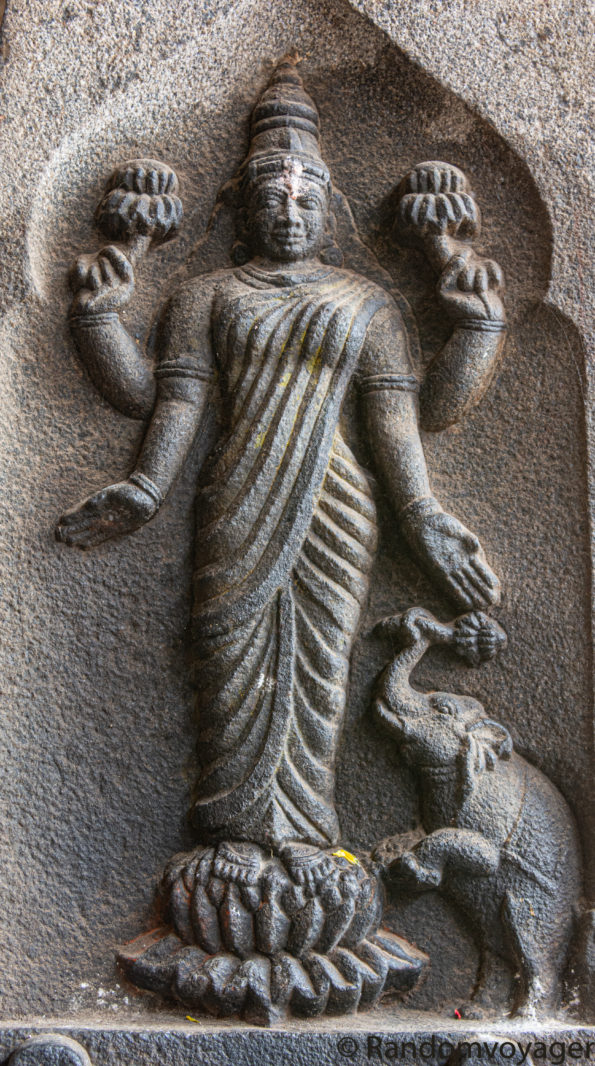
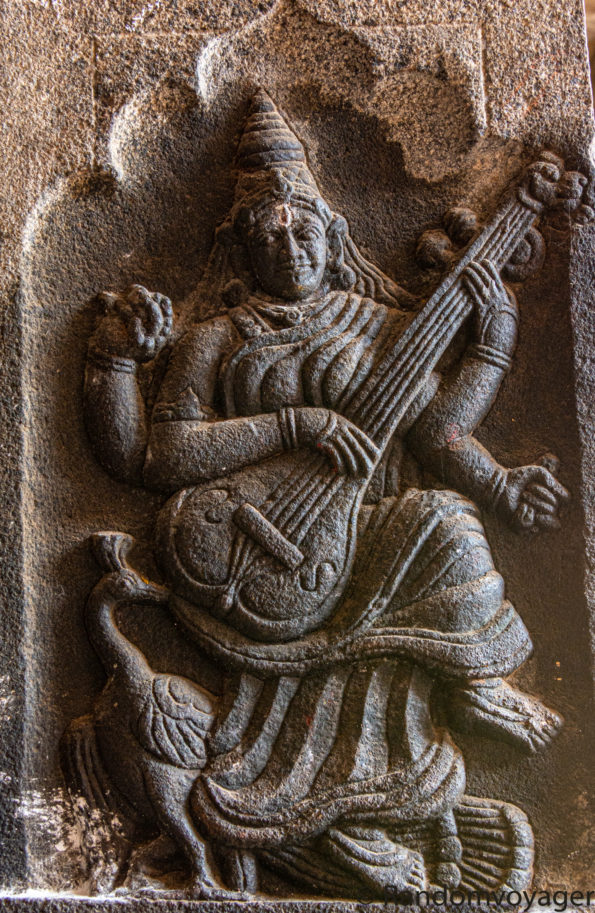
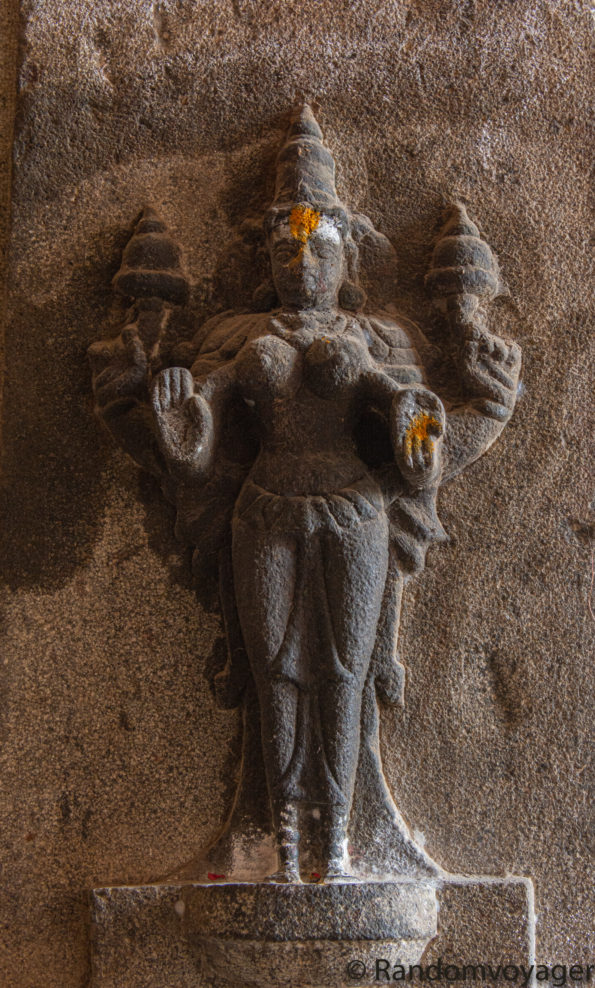
Aadi 18 Perruku, a festival that is celebrated on the 18th day of this Aadi. ‘Perukku’ means rising, indicating the rising water in rivers due to monsoon. On this day people give thanks to water and water bodies. People flock towards major riverbanks to pray , thanks to the Gods and honoring rains, rivers and water. The rivers by this time of Aadi month are swollen and are in full force as monsoon is at its peak during this period. People, especially farmers give thanks and pray for full monsoon; as this is the month sowing, seeding and planting of crops is done. During the entire month of Aadi Goddesses related to nature and water are venerated. Many pray to Goddess Parvathi. Village deities like Mariamman, Munadakanniamman are prayed to as well.
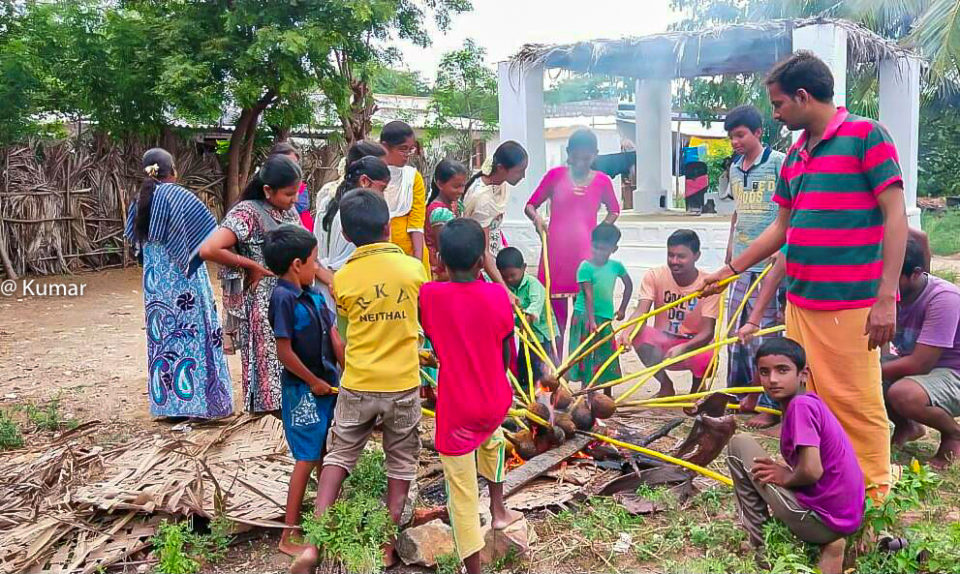
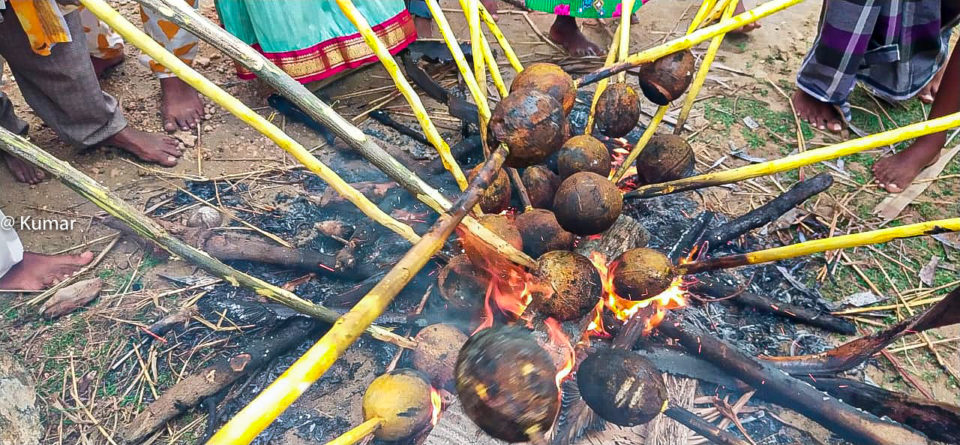
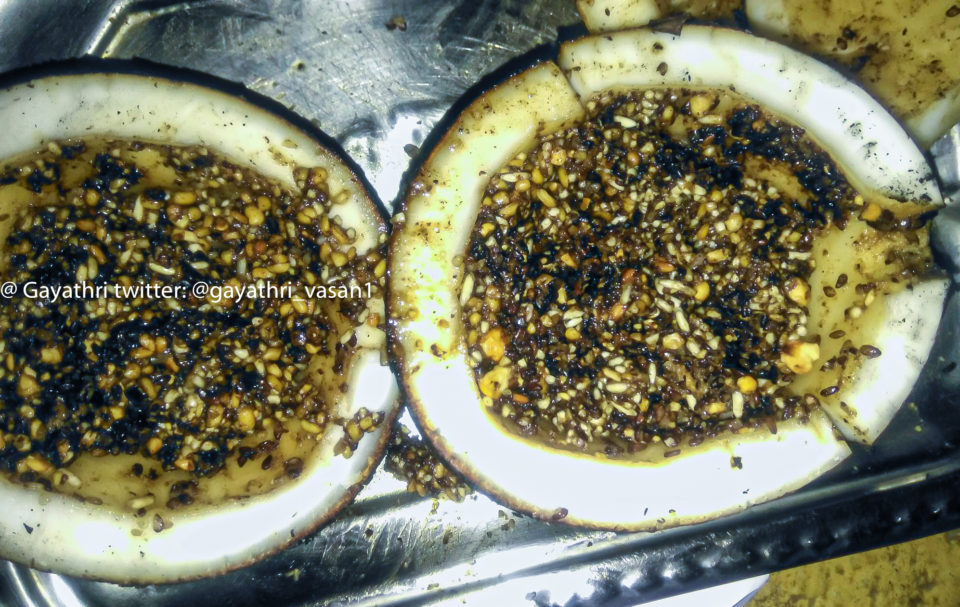
The other unique part of this festival is, it is completely carried out by women called the Mulaipari. Mulaipari means germination of seeds. Women and young girls on this day dress up beautifully in the finest of clothes, jewellery, flowers and gather around in large groups. They bring along a clay pot that contains germinated seeds of 9 grains . Before starting the procession towards the river banks they sing folk songs and dance the Kummiattam praying to the Goddesses for ample rains that mother earth can receive. This would make for a fertile land that can accept the seeds the farmers are about to sow, so that they can harvest a bumper crop during the month of Thai (festival of Pongal). The women after praying, singing and dancing, place the clay pots containing the germinated seeds of nine grains on their heads and walk up to the banks of the river. Once they reach the river banks they will drop the clay pot into the river body. Then the families also join in to light up special lamps made of rice flour and float it into the river just as people have been doing for many centuries.
This day is also considered very auspicious for married women and they can on this day change sacred thread of matrimony, their thali too. Many women who wear a yellow thread as their thali can change over to a new one this day.
Aadi is the month when marriages are not solemnized as it is considered as an inauspicious time of the year to start a newly wedded life. Perhaps this has something to do with old times when all such customs were held in open areas, a month in which it rains all the time is not such an ideal time for marriages to take place. If we look at it today, it still holds true. Aadi is the month of sowing, seeding and planting new crops. So the farming family needs all hands on the deck , newly wedded couple will need time for themselves making it a difficult proposition. Another reason could be monetary, money is needed for hiring farm hands, buying seeds, fertilizer etc hence money can not be spent on a once in a lifetime ritual like marriage. Besides if everyone is busy with their farming schedules , they will not be able to attend the marriage at all. In villages and small towns both planting season, birth of a baby and marriage ceremonies are of utmost importance and the whole village tends to participate in these occasions. So no marriages are ritualized during the month of Aadi
Late evening families sit by the banks of the river enjoying the breeze , while having their dinner that they bring with them. Dinner usually comprises of rice made in many ways like Yogurt rice, lime rice, tamarind rice, coconut rice, sesame rice, sweet pongal and rice payasam.
Aadi month symbolizes new beginnings, fertility, renewal, continuity and is welcomed in style by the Tamils.

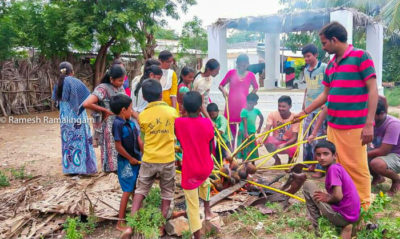
Very nice post. I just stumbled upon your blog and wished to say that
I have really enjoyed surfing around your blog posts.
After all I’ll be subscribing to your feed and I hope
you write again very soon!
I am extremely inspired with your writing skills as well as with the layout for your weblog. Is that this a paid subject matter or did you modify it yourself? Either way keep up the nice quality writing, it is rare to look a great blog like this one these days.
It is a site whether either it myself or my wife who would write. Thanks for the kind words
Your style is so unique in comparison to other people I have read
stuff from. Many thanks for posting when you’ve got the opportunity, Guess
I will just book mark this page.
Thank you for the comments.
What’s up, I log on to your blog regularly. Your writing style is witty, keep it up!
Thank you – will check and fix it